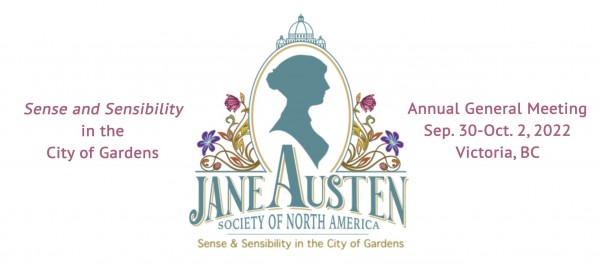In Sense and Sensibility we’re almost always aware of precisely where we are. We begin at Norland Park in Sussex, a place imbued with a family history of respectability—if not health or fertility. After the deathbed promise extracted by Mr. Henry Dashwood but reinterpreted by his son, the Dashwood women are “degraded to the condition of visitors,” only tenuously inhabiting what has been their home. Before leaving, Marianne walks the park to bid farewell to the dead leaves of her youth. A long coach ride (and furniture sent round by water) shifts the scene to Barton, five miles north of Exeter. Barton Cottage, with its small rooms and proximity to Barton Park—only half a mile away—can suffer invasions of privacy. Avoidance and also the dramatic landscape of hills and downs tempt the Dashwood girls to seek “the exquisite enjoyments of air.” Both Marianne and Elinor withdraw to interior worlds created by music and drawing.
Even in London (after another journey by coach) locations are carefully specific. Austen locates the characters in Mayfair and Marylebone: Mrs. Jennings (a transplant from the City) in Berkeley Street, Mrs. Ferrars on Park Street, Willoughby in rooms on Bond Street, the Palmers on Hanover Square, the Middletons on Conduit Street, Brandon on St. James Street, and the John Dashwoods on Harley Street. Scenes are set at Gray’s, Sackville Street, in social spaces, in the privacy of bedrooms, and at Kensington Gardens. When another coach ride takes them to Cleveland, we’re again conscious of the differences between inside and out as Marianne escapes both to the library and to the “most distant parts” of the grounds, “where there was something more of wildness . . . , where the trees were the oldest, and the grass was the longest and wettest.”
While characters might rejoice in “animating gales” and the freedom from unwelcome society that nature promises, there’s also a danger to that world out of doors. Marianne tumbles about and sprains her ancle, only to be rescued by Willoughby. With him she rides unchaperoned about the lanes to Allenham, a serious breach of behavior that threatens her reputation. After walking in the wet weeds at Cleveland and neglecting to change her stockings, she falls ill. Even Elinor’s time outdoors is made oppressive by the unsought and unwelcome confidences of Lucy Steele at Barton and Anne Steele in London. Throughout the novel we attend to the distinctions between indoors and outdoors, internal and external, isolation and privacy, society and community.
How perfect, then, was the site of the JASNA’s 2022 Annual General Meeting, Sense and Sensibility and the City of Gardens! More than 700 Janeites from across Canada and the United States, from Mexico, the United Kingdom, New Zealand, and Australia, met in Victoria, British Columbia, a city continually tempting us outdoors to “the exquisite enjoyments of the air,” to lush flowers and foliage, and to a view of the harbor. Indoors, however, we were much luckier than Marianne and Elinor: there was no poverty of conversation. In fact, the program organized by Alison Dacia Brown provided an abundance of ideas and perspectives to encourage talk, dialogue, discussion, and laughter.
The articles in the AGM section here are a partial representation of the delights of the 2022 AGM. Here you will find essays on Sense and Sensibility’s outdoor world as well as its exploration of interior worlds; the novel’s sources and influences; its translations, illustrations, and adaptations. More from the AGM will be published in Persuasions 44, to be mailed in the late spring. The Miscellany includes essays on widely ranging topics—from Henry Austen’s bankruptcy to Andrew Davies’s Sanditon.
This issue is the work of many hands. The authors have shared their research and their insights, doubtless invigorating the conversation about Jane Austen for years to come. The members of the Editorial Board of Persuasions, listed on the title page of this journal, have been generous with their time and their intellectual energies. Carol Moss is a creative builder of pages and a careful reader of these essays; she has saved us from many errors. Marsha Huff has checked and proofread all the essays here and those to be published in Persuasions and offered insightful suggestions. Collins Hemingway is a new and valuable member of the proofreading team. Finally, many thanks to Erika Kotite, whose term as Vice President for Publications ended yesterday. Her help and support through the years have been invaluable. In Persuasions On-Line 43.1, we offer you a garden of delights.

